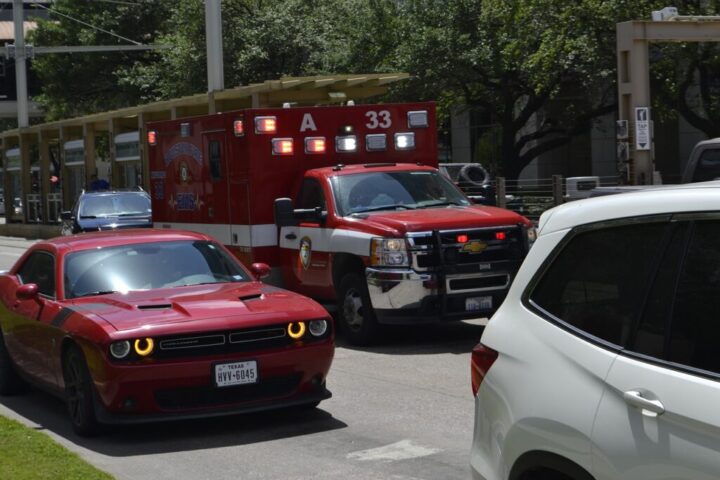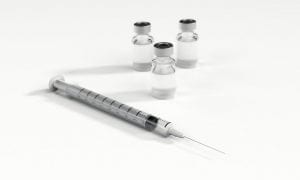People with hereditary and acquired angioedema have unpredictable attacks of swelling/inflammation/pain, most of which can be managed with rescue meds like Firazyr, Berinert, Kalbitor, and Rhucin, plus a prescribed med such as Zofran for nausea, and something for pain.
But there are those attacks that, while infrequent for most people, require medical assistance.
Often hospitals that have identified HAE patient
s in their area will stock Berinert just for those emergency situations.
Even if they don’t, the hospitals have the meds for inflammation, nausea, vomiting, and pain that will help patients ride out the 12-18 hour event, (or longer if needed). They also have the ability to protect and support the airway during throat swelling episodes.
An emergency plan for those (hopefully rare) attacks that require medical assistance is high on the list of recommendations for the management of HAE attacks for all of us.
Here are some questions and recommendations that will help you begin to develop your plan:
Do you have a written list of your meds, allergies, diagnoses, next of kin name and phone info, and health insurance number with you in your wallet? I do like the idea of a medical alert bracelet, and suggest that people not use the term “Hereditary Angioedema” on them, because it can cause confusion, but rather, the term: “C-1 Inhibitor Deficiency”. It’s good to use the larger ones that have more room on them for the critical information, like the treating doctor’s name and phone, as well as any major drug allergies.
Do you have a “go bag” with a change of underwear and something comfortable to wear home from the hospital/emergency room (in case your clothing was soiled)? Cab/Uber money and credit cards are a good idea just in case you have difficulty getting a ride home.
It happened to me once – the ambulance had taken me when I was in my nightgown, and after I got all fixed up in the ER, I realized my daughter was vacationing in a different state, my son lived too far away, and the only way I had to get home at 2 AM was by Uber. In my nightgown. Had I brought my “go bag”, I would have had sweats to get in to for the ride home. Yes, it was embarrassing!
Is there a hospital near you (and that includes cities when you are traveling), that can manage an HAE attack? Your Specialty Pharmacy rep or HAE rescue Rx pharmaceutical rep can help you locate that hospital when you are traveling, inform them that an HAE patient will be in their locale, and locate a home health agency that can assist with Kalbitor injections or IV access on an outpatient basis. Just in case.
Does your area have ambulance service?
If so, call them and tell them that you have a rare inherited blood disorder (C-1 Esterase Inhibitor Deficiency or the newer term: Bradykinin Induced Angioedema), and that you may require emergency services.
Often ambulance services will be happy to make an appointment to come out to your house (on a non-emergency basis the first time) to better understand the urgent needs experienced by people with this disease during an attack that cannot be best manage at home.
They will also want to check on accessibility to the inside of your house in case you are alone and can’t get to the door to let them in, as well as access from your bedroom for example, with their equipment.
Some local fire/ambulance companies offer services such as the Knox Box supported devices that enable EMS services to get into your home after a call requesting assistance. Then they won’t resort to having to break down a door to get in if you are unable to unlock it to let them in. There are other devices, some requiring month to month agreements. Click here to learn more.
Will you need babysitting services on an emergency basis while you are being taken to the hospital? Who can quickly come to your house to help? Do you have a neighbor, friend, or relative who can come out 24/7 to babysit your children while you go to the hospital? Set that up ahead of time so that there will be no last-minute confusion when you need them.
Who can assist you in getting IV access when you are sick and can’t seem to get a vein, or when you need a medical professional to administer Kalbitor? Some people have relatives trained in starting an IV who can help during those times when you’ve done three sticks and had no luck.
Have you and your doctor developed a plan for using your HAE rescue meds and how to identify early signs of an oncoming attack? It is far better to get those meds into your system long before you are at the stage of the attack when symptoms are most intense (and potentially dangerous).
Do you have at least 2 doses of rescue meds on hand at any time? Have you asked your general practice doctor for a prescription for anti-nausea meds and recommendations for pain management that you can keep on hand to use at the onset of symptoms?
For your safety and peace of mind, give yourself and your loved ones the gift of knowing your bases are covered as much as they can be!
And don’t forget to review your plan every year and when you move or travel, updating as needed!
GO BAG suggestions:
Keep it where it is easy for you to access, maybe near your purse/wallet, in your coat closet, etc.
- Cellphone cord and charger
- Ear buds/ earphones – listening to soft music or a book on tape can help while you are waiting on medical staff to do their thing. (I’ve never found it to be helpful when I am in severe pain or vomiting, though. But after the worst is passed, and you are waiting for discharge or a ride, it can be helpful.)
- Something comfortable to wear home if your clothing has become soiled.
- Room for the boxes of your HAE rescue med. Your body and your Emergency physician will thank you for bringing them.
- A signed letter from your treating immunologist (or other doctor that prescribes your HAE meds) detailing your diagnosis and recommendations for emergency care.
Take time to develop your emergency plan and discuss it with your relatives and friends. They may think of helpful additions to your plan!
Your Friend in Hereditary Angioedema,
Teresa Scruton
About the Author: Teresa Scruton is a tireless advocate and educator for HAE. A former Federal Research Project Coordinator and retired Federal Research Compliance Officer, she truly understands the challenges rare disease patients face. She would love to see all with HAE have access to the medications they need and wants HAE diagnoses and treatment protocols added to emergency room doctors’ apps. She hails from Nebraska!







